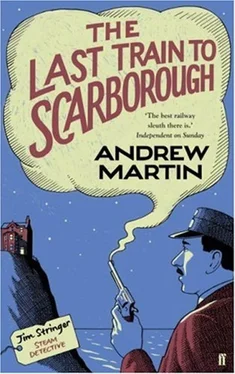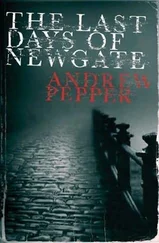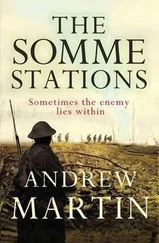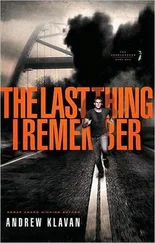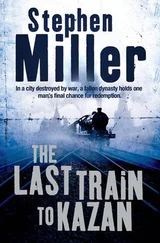I saw in my mind's eye the mighty station waiting as the trains waited within it, the notable churches of the city, and some of the very old buildings of the centre. I saw a display of the new electric trams, and then I was with the newest of them all, following the newest route of all. The side of it said 'Singer's
Sewing Machines' and the board fixed to the front said where it was going: the terminus of Line Nine, the Beeswing Hotel.
That had been the start of it all, but before that there'd been an earlier start. Of course, this too had to be in York, for that was where I started. But the outskirts… and again I was back in Thorpe-on-Ouse.
When? Some time before or after my journey to the Beeswing. No, it must have been before. We were in the front parlour of our new house, which had several parlours, depending on how you looked at it, but only one so far cosy. Again, it was spring time: primroses in prospect – in the very air – but not yet appeared.
And the fire blazing in our new front parlour, rows of tins of paint lined up ready near the door.
Thursday 12 March, 1914: in the National Gallery, London, the Rokeby Venus had been attacked. The event was reported in the Yorkshire Evening Press and the account lay on the table between us. Mary Richardson, feminist and suffragette, had gone at the painting so named with an axe. Earlier in the day, Robert Henderson, who was the son of Colonel Robert Henderson, whose smooth looks and smooth name I did not like, had stopped the wife in the high street of Thorpe – stopped the wife, I stress. I, walking alongside her, he had quite ignored.
'I do not know the female equivalent of the word "confederate", Mrs Stringer,' he had said.
'Nor do I,' Lydia had said.
'But your confederate, Miss Mary Richardson, has destroyed one of our greatest paintings.'
'Has she?' the wife had said, not yet having seen the Press.
'The report was in The Times this morning,' said Henderson.
'Which painting was it?' enquired the wife. 'Just out of interest.'
'You seem pretty sanguine about the whole business,' he'd replied. 'But then you are part of the women's Co-operative Movement and you agitate on behalf of the suffragettes.'
'Agitate!' said the wife. 'I wouldn't know how to agitate if you paid me.'
'Oh, I think you would,' he said, at which I had to cut in.
'We're just off actually, Mr Henderson,' I said.
He tipped his derby hat at me, but continued to address the wife: 'I do believe you are a symptom of the malaise afflicting the country, Mrs Stringer.'
And then of course he'd given a grin.
'You are a symptom of the malaise afflicting the country,' I said to Lydia as we walked on down the dusty road, in the light rain, making for the boot maker and mender's with the lamps overdue for lighting but old man Shannon nowhere in sight. 'What do you make of that?'
'I'm rather flattered,' she said, as we turned in at the gate of the boot maker's long front yard.
'Yes,' I said, 'I could see. You coloured up.'
'I certainly did not,' she said.
But she had done, and the colour was up in her face still as she lay on the sofa in our new front parlour, in the new (and also very old) house a little way outside the village, the house that had been practically given us by that same Robert Henderson: seven shillings a week for a place three times the size of our earlier one, and with a contract giving us the option to buy at some equally favourable rate.
It was nine o'clock, as I knew by my watch rather than by the clock of St Andrew's church, which did not now reach us, we being so far out.
'I mentioned the business about the Venus to Peter in the Fortune earlier on,' I said.
'Oh yes?' said the wife, who was not in the least interested in the sayings and doings of Peter Backhouse, who was the verger of St Andrew's, even though she counted his wife, Lillian, amongst her best friends.
'He said, "Somebody did what, you say? To the Rokeby what?"'
The wife sighed.
'And to think it was done for publicity,' she said.
She sat back down. The law books were on the tab rug between us.
'I don't know about all this business,' I said, indicating them. 'All I wanted was to be an engine man, and when that came to nothing, I settled for being a railway copper.'
'Don't fib, Jim,' said the wife, and we listened to the ticking of the clock, the ticking of the fire, and then the mooing of a cow, of which we heard a good deal in our new house, along with wood pigeons.
We were more thrown together, living so far out, and that was good and bad. The wife's aim was to set us up with our own little empire, and her work for the women's cause was starting to take second place to that, although she would never have admitted it. She'd gone all out for the country life, stealing a march on me, for I was the Yorkshireman. I was the one who'd taken her north, having struck that bad business while apprenticed for the footplate with the London and South Western Railway. For me, life in the North Eastern Railway police was next best thing to life on the footplate. I'd been promoted detective sergeant in double quick time, and I now made fair wages. But the wife wanted to make me a sort of gentleman farmer-cum-solicitor, and her pushing had earned its reward. I was on the point of giving in my notice, with a view to starting as articled clerk in the offices of Parker and Wilkinson, an arrangement subject to my performing satisfactorily during what was billed as a 'conversation' with Mr Parker himself about railway law. His outfit was one of several firms that did work for the North Eastern, and their particular speciality was cases of personal injury: the paying off – or, better yet, fending off – of passengers' claims for damages.
I knew very well that this conversation was to be a test, albeit of a gentlemanly sort, and it was now less than twelve hours off. Going into the office of Parker and Wilkinson would entail at first a cut in my earnings, but the wife had told me to see this as taking a step back in order to make a great leap, and she was prepared to dip into the inheritance she'd had from her father in order to help fund my training for the law.
'Shall we have another look at Buckingham?' she enquired.
'Go on then,' I said, and she picked up the book.
'The train he's waiting for is running late,' said the wife, after an interval of reading lying down with her head propped in her hand. 'He takes a carriage instead, and then sends the bill to the railway company. Will they settle?'
'They'd be better off just paying him not to use the railway,' I said. 'They should pay him to leave the bloody country.'
The wife eyed me.
'It depends on the lateness of the train,' I said. 'If it's only running half an hour late, that would be a reasonable delay. A day late would be unreasonable. Anything in-between, you argue about.'
The wife yawned as she said, 'That's about right, Jim. I'm sure you'll do brilliantly tomorrow.'
'Are you?'
'It's really nothing to worry about. Mr Parker said it would be a formality.'
'That's just what bothers me.'
She came across and sat on my sofa, lifting her skirts as she stepped up, like a tomboy climbing a hill.
'You'll have a lovely day of it tomorrow,' she said. 'Your meeting with Mr Parker will be over in no time, and when it's done, you'll be on the road to being a solicitor… I know you've the whole day off, but you might call into the police office to let them know how you get on.'
'To put on swank, you mean?'
'… You'll perhaps take a turn in the Museum Gardens, then perhaps go to Brown's to see how your new suit's coming on.'
Owing to the slowness of Brown the tailor my new suit would not be ready in time for the interview, and I would be making do with my best suit.
Читать дальше
